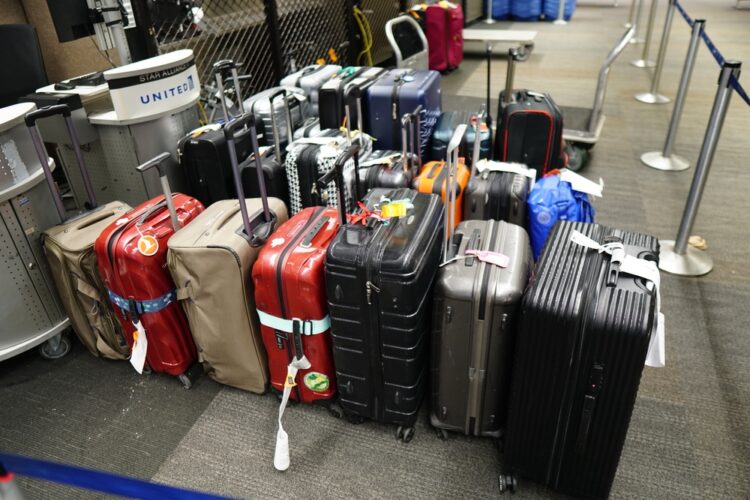Travel insurance is more than merely a prudent choice for safeguarding the funds you’ve invested in your holiday. An experienced traveler, I don’t travel more than 1,000 miles from home without it. Post-Covid, travel insurance has become a more commonly purchased travel accessory. The thought of having to shell out for the cost of a hotel to hole up with a COVID-19 infection contracted internationally is enough to convince me of the merits of purchasing insurance before every trip. It’s understandable, however, if you’re reluctant to incur an additional cost after paying for flights, accommodation, dining, and excursions. Nonetheless, if the loss of non-refundable payments you’ve made is something you cannot financially absorb, investing in travel insurance is a wise decision.
Overall, the expense of travel insurance is minimal compared to the potential financial loss you could face due to unforeseen travel hiccups. But when is it truly essential to opt for travel insurance?
- The non-refundable expenses of your trip are significantly higher than what you’re comfortable losing.
- Your journey is more than 1000 miles from home domestically, or any international trip, or your destination is one with sparse medical facilities.
- Your journey involves multiple destinations or connecting flights.

What Does Travel Insurance Typically Include?
Travel insurance offers reimbursement for unexpected financial losses before and during your journey. Equally crucial, it can cover emergency healthcare and evacuation while you’re away. The most comprehensive travel insurance plans offer an assortment of coverages encompassing trip cancellations, medical emergencies, luggage issues, and more.
Unpredictable events, such as the bankruptcy of a tour company, personal illness, or a family member’s death, could necessitate the cancellation of your trip before you even start packing. In these instances, travel insurance with trip cancellation coverage will refund your prepaid, non-refundable trip expenses. Be sure to work with the insurance company you choose to fully understand what is, and is not, covered.
Travel Delay, Interruption, And Missed Connection Coverage:
Circumstances such as aircraft mechanical problems, inclement weather, or missed connections can result in extra hotel nights, meals, and additional flights.
“Cancel For Any Reason” (CFAR) Travel Insurance:
Standard trip cancellation insurance allows claims only for reasons explicitly mentioned in the policy. For more extensive protection, you can opt for a “cancel for any reason” (CFAR) add-on. CFAR permits you to cancel for any reason, providing partial reimbursement if you cancel a minimum of 48 hours before your planned departure. For example, you might choose to remain home for a high school reunion. CFAR typically increases the cost of a travel insurance policy by as much as 50%, with reimbursements usually around 75% of the lost trip funds.
Emergency Travel Health Insurance:
A medical emergency can significantly disrupt your travel plans and finances. Domestic health plans in the U.S. often offer limited or no coverage abroad, leaving you financially responsible for any medical services you might need while traveling. For example, Medicare typically does not cover medical emergencies outside of the United States. Travel health insurance covers expenses like doctor visits, hospitalization, ambulances, medication, X-rays, and laboratory services up to the limits specified in the policy. Some policies are “secondary” coverage behind your primary policy. In addition, many provide “reimbursement” for medical treatment, meaning you will have to pay the local providers and then be reimbursed by your travel insurance company. Check to see what your policy does not cover as well. Accident while intoxicated or while climbing a mountain? Maybe, maybe not.

Medical Evacuation Coverage:
Consider scenarios like needing an emergency helicopter rescue during a Swiss mountain hike, recovering from a heart attack in a Colombian hospital, or necessitating a flight back to the U.S. from Jamaica for a hip fracture treatment. Worldwide, the estimated costs for emergency transport to a medical facility can well exceed $20,000, depending on the nature of the evacuation. Medical evacuation coverage covers the expenses of being transported to the nearest medical center capable of treating you. It may also cover the costs of a medical flight back to the U.S. for more advanced care. Additionally, this coverage can include repatriating a traveler’s remains to the U.S.
Baggage Delay And Lost Luggage Coverage:
Imagine your luggage not arriving in Tokyo when you do. You need fresh clothing, toiletries, and perhaps even a new suitcase. Baggage delay coverage reimburses you for these necessary purchases. Alternatively, suppose your baggage is lost, stolen, or damaged during your journey. In that case, lost luggage coverage compensates you for your belongings and luggage up to the limits stipulated in the policy. While airlines may provide some compensation for lost, damaged, or delayed baggage, it’s often limited.

Many times, frequent travelers neglect travel insurance because they have never needed it in the past. That is a bit too much like gambling for me. On a trip to Boston three years ago, my husband fell in the tub, resulting in 7 broken ribs, surgery, a week in the hospital for him, a hotel room for me, and two train tickets back home since he could not fly with a collapsed lung. We hadn’t purchased travel insurance because “we were just going to Boston.” His medical insurance covered the emergency medical care, but the other expenses were on us.
Yep. We purchase travel insurance now.
